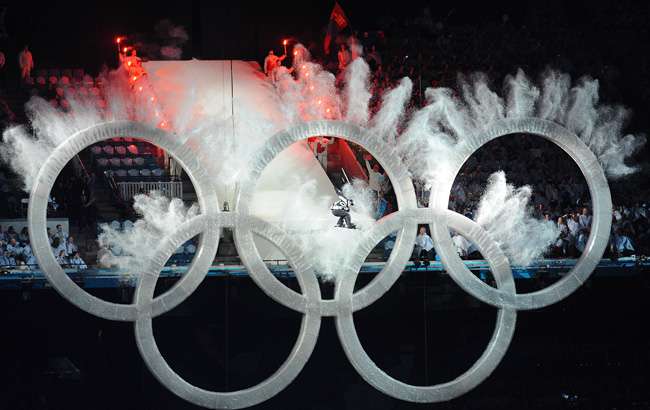1
The first Winter Olympics was held in Chamonix, a winter resort town in the French Alps in 1924, where 285 athletes from 16 different countries competed in six different sports. Charles Jewtraw, an American speed skater, won the first gold medal in the history of the Games in 500m speed skating.
2
East German speed skater Christa Luding Rothenburger became the first and only athlete to earn a medal in the same year at both the Winter and Summer Olympics in 1988, the last time both Games were held in the same year. Rothenburger won gold and silver medals in Calgary in speed skating, her primary sport before switching gears and joining the track cycling team in Seoul.
3
The 2014 Winter Olympics taking place in Sochi, Russia will be the warmest (expected average temperatures of 8°C) and most expensive games held to date, with an estimated cost of more than $50 billion. It also represents the first time after the breakup of the former Soviet Union that Russia has hosted the Olympic Games.
4
The first Russian to carry the Olympic torch in this year’s relay was NHL star Alexander Ovechkin. The torch will travel over 65,000 kilometres and pass through all 83 regions of Russia, making it the longest relay in the history of the Winter Olympics.
5
The Winter Olympics have never been held in the southern hemisphere, but, unsurprisingly athletes from regions with frigid northern climates such as Scandinavia, North America, and Northern Europe have been historically dominant on the podium. Austria, Canada, Norway, Finland, Sweden, and the United States are the only countries to have medalled in every game since Chamonix.
6
Even with the influence of Cold War politics hanging over previous Olympics such as Moscow 1980 and Los Angeles 1984, the Sochi Games stand to be one of the most controversial Olympics to date. Numerous heads of state, including American President Barack Obama and Canadian Prime Minister Stephen Harper, have refused to attend on the basis of Russia’s anti-gay laws.
7
Since 1992, numerous sports have been added to the Olympic palette and have increased the worldwide appeal and marketability of the Winter Games. Popular mainstays from X Games sports such as freestyle skiing and snowboarding have crossed over onto the international stage and have seen increased parity in medal standings.
8
The 2010 Vancouver Olympics was only the second time that Canada had hosted the Winter Games—the first being in Calgary in 1988. Canadians garnered 14 gold medals in Vancouver to lead the medal board. This total broke the previous record for most gold medals—13, held by both the Soviet Union (1976) and Norway (2002).
9
Sadly, the Winter Olympics have seen the deaths of multiple athletes throughout the Games. Two skiiers and two lugers have died in the 90 years since the Games were created. Nodar Kumaritashvili, a Georgian luger, is the most recent athlete to have passed away, following an accident at the Whistler Sliding Centre during the Vancouver Games.
10
Canada’s most successful sport at the Olympics has been ice hockey, in which the red and white have earned 11 gold medals. The women’s team has won the past three tournaments, while the men’s squad has emerged victorious in two of the past three Olympics.









